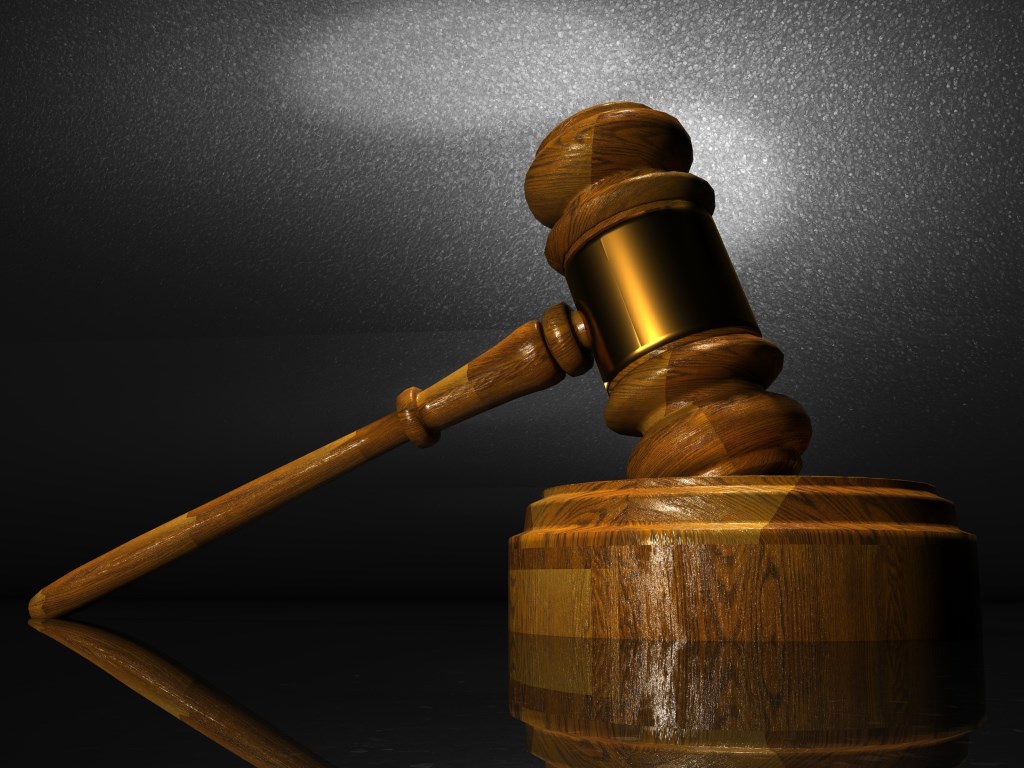Bill Allows Testimony Via Video, Phone
Opponents say it violates defendants’ right to confront witnesses against them.
Crime victims and witnesses at least 60 years old would able to give their testimony in criminal court cases ahead of the trial and possibly over the phone, under a bill approved by the state Senate.
While some groups applauded the bill, Aaron Nelson, the president of a statewide lawyer’s organization, said it is unconstitutional because allowing testimony by phone or video violates a defendant’s right to confrontation. The bill has other flaws, as well, he said.
“The ability to recall certain details is critical to the outcome of court cases,” State Sen. Patrick Testin (R-Stevens Point), author of the bill, said in written testimony. “As degenerative brain diseases increase in senior populations, the system must be able to respond to the unique needs of an elderly victim’s ability to testify.”
Under the bill, now pending in the Assembly, the defendant would be required to be present during the testimony and the victim or witness would be subject to cross-examination.
The bill would allow the victim or witness to testify by phone or video if they have a good reason to do so, and would mandate that the recorded testimony be admissible against a defendant.
It also also would require a judges to work to ensure a speedy trial “in order to minimize the length of time the elder person must endure the stress of the elder person’s involvement in the proceeding,” the bill says.
But Nelson, head of the Wisconsin Association of Criminal Defense Lawyers, said the the bill is “certainly problematic.”
“The good news is the 60-day limit could force judges to appoint lawyers for indigent defendants at county expense much sooner than they otherwise would,” he said. “The defendants obviously have the right to counsel during this testimony.”
If the State Public Defender’s Office cannot find a lawyer for an indigent defendant, the judge in a case has the power to appoint a lawyer at county expense. Many judges do not want to do that because of the costs to the county, and defendants can sit in jail, unrepresented, for weeks or months. The early testimony and the defendant’s constitutional right to a lawyer would force judges to make the appointments.
“Some of these may be drafting issues, rather than ill intent,” Nelson said, “”but they need to be fixed.”
Backers of the bill, in written testimony, said it would benefit the victims or witnesses.
“Involvement in these types of court proceedings can be very stressful,” said Janet Zander, advocacy and policy director for the Greater Wisconsin Agency on Aging Resources. “Court proceedings that drag on and have multiple continuances can create needless stress which can trigger trauma symptoms in both victims and witnesses.”
And Michael Bruhn, public policy director for the Alzheimer’s Association – Wisconsin, said that “we have witnessed an increase in criminal defendants and their attorneys utilizing the court system to delay court proceedings. These delays are meant to prolong a criminal case until a victim’s health deteriorates or a cognitive impairment progresses to the point that the victim is no longer able to testify against in the case.”
Gretchen Schuldt writes a blog for Wisconsin Justice Initiative, whose mission is “To improve the quality of justice in Wisconsin by educating the public about legal issues and encouraging civic engagement in and debate about the judicial system and its operation.”
Court Watch
-
No Unemployment Benefits For Worker Making Homophobic Remarks
 May 17th, 2022 by Gretchen Schuldt
May 17th, 2022 by Gretchen Schuldt
-
Appeals Court Upholds Injunction Against Abortion Protester
 Mar 13th, 2022 by Gretchen Schuldt
Mar 13th, 2022 by Gretchen Schuldt
-
80% of State’s Judicial Races Uncontested
 Feb 20th, 2022 by Gretchen Schuldt
Feb 20th, 2022 by Gretchen Schuldt























It would be nice to know what evidence Mr. Bruhn has to support his claim that defendants and their attorneys are purposely delaying cases to prolong a case “until a victim’s health deteriorates or a cognitive impairment progresses to the point that the victim is no longer able to testify against in the case.” Criminal cases are quite complex and the consequences are high. Asserting without evidence the motivation behind a case not resolving as quickly as Mr. Bruhn expects is seriously problematic. First, define delay. Should it conclude in a week? In a month? Two months? Delays in cases occur for many reasons, including delays on the part of the state. Please give me the evidence that delays are increasingly due to defense tactics and not due to the state’s preparation, the court’s calendar, COVID, just to name a few factors.